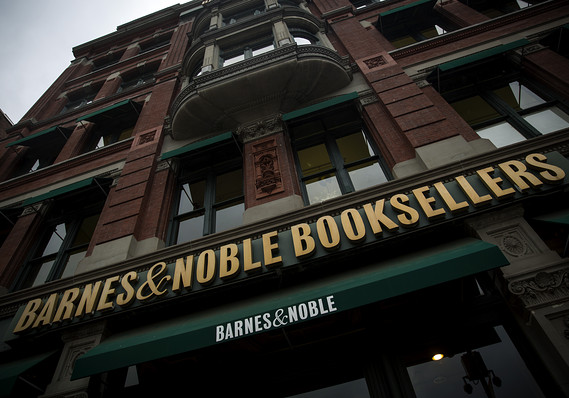Barnes & Noble is facing a competitive threat from small booksellers with a loyal following
Customers loyal to their mom-and-pop bookseller aren’t shopping at Barnes & Noble either
Barnes & Noble Inc.’s biggest competition may be Amazon.com Inc., but it’s also feeling the heat from local mom-and-pop bookstores that have cultivated a loyal customer base.
“Many of the smaller and surviving local booksellers have almost a cult following and they have well-publicized readings and other similar events,” said Chuck Tatelbaum, chair of the creditors’ rights and bankruptcy practice group at the Tripp Scott law firm. “Chain stores such as Barnes & Noble cannot compete with that type of activity.”
Barnes & Noble BKS, +1.09% said in a Tuesday filing that it will incur a charge of about $11 million in its fiscal third-quarter tied to severance costs from the elimination of store positions, though the company didn’t say how many cuts it plans to make. The estimated cost savings of the new “labor model” is about $40 million.
“The new model will allow stores to adjust staff up or down based on the needs of the business, increase store productivity and streamline store operations,” the filing said.
Barnes & Noble said sales fell 6.4% for the holiday period to $953 million and same-store sales fell 6.4%. Online sales decreased 4.5%, according to the January announcement.
Sales overall for the November and December period grew 5.5% year-over-year to $691.9 billion, according to the National Retail Federation. The figure excludes car dealers, restaurants and gas stations.
“Barnes & Noble is unfortunately situated in the unique position where it has virtually no competition except for Amazon AMZN, +0.48% and small independent booksellers that are rapidly disappearing, yet this hurts and not helps,” Tatelbaum said. He was not surprised by the latest announcement and thinks it was “overdue.”
According to Dan Cullen, senior strategy officer at the American Booksellers Association, a national, not-for-profit trade group for independent booksellers nationwide founded more than a century ago, independent booksellers are experiencing consistent growth.
“There has been a real resurgence for independent bookstores,” he told MarketWatch. “For more than five years, the indie bookstore channel has seen an increase in the number of stores and a growth in sales.”
In 2017, book sales at independent bookstores was up 2.6% year-over-year, and the compound annual growth rate was 5.4% for the previous five years.
Tatelbaum also thinks Barnes & Noble is at a disadvantage because of its “limited” merchandise.
“Unlike other retailers which can change the mix of inventory to attract customers, a large bookseller cannot,” he said.
Tatelbaum raises concerns about Barnes & Noble down the road.
“If vendors become too concerned and limit shipments of popular publications, this can have a compounding adverse impact,” he said.
Barnes & Noble also announced Monday that Timothy Mantel has been named the company’s new chief merchandising officer.
Barnes & Noble shares closed Tuesday down 3.2% and the stock is down more than 57% for the last year. The S&P 500 index SPX, +0.76% is up 14.4% for the last 12 months.
By TONYA GARCIA

